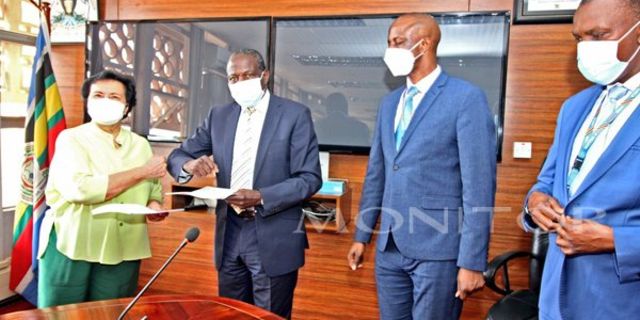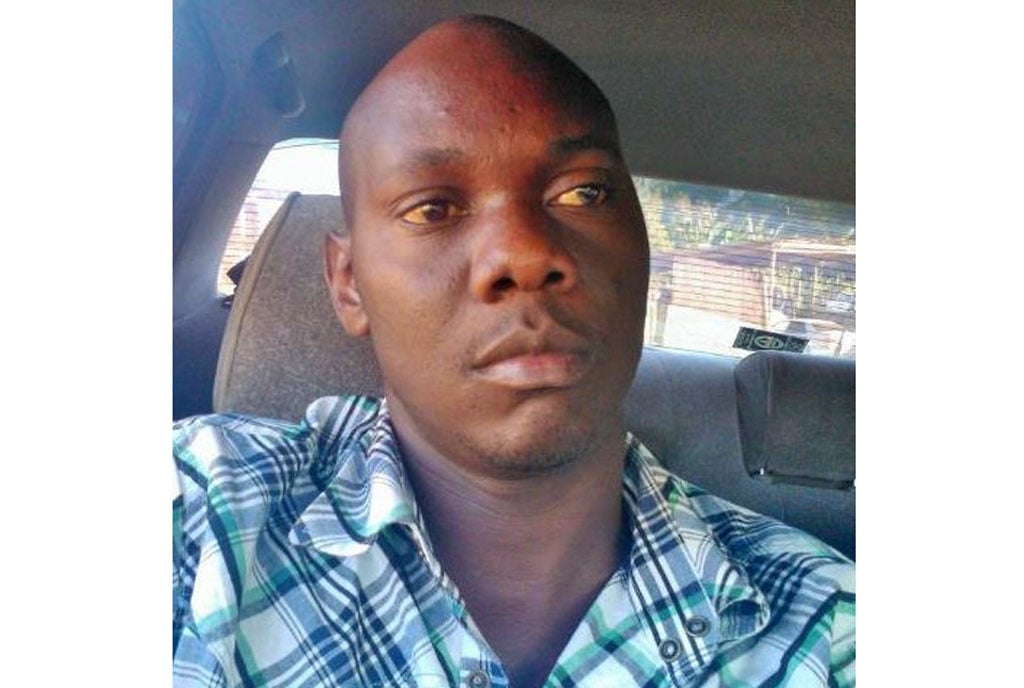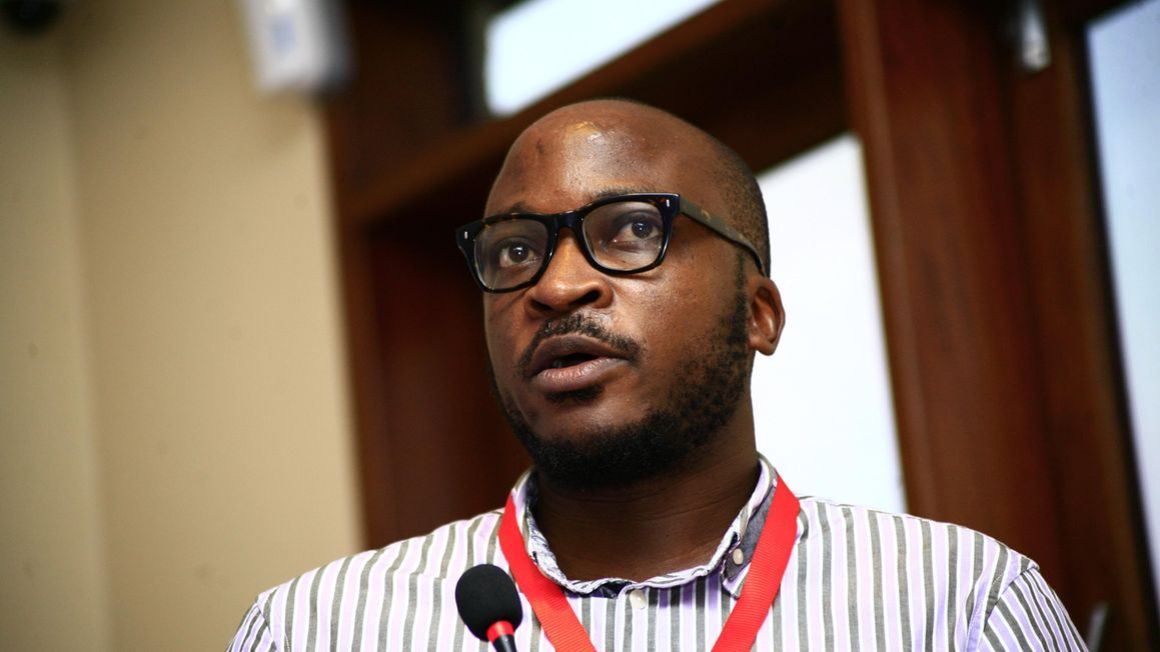Prime
Ugandans cite bad taste in coffee deal

Finance minister Matia Kasaija (2nd left) exchanges documents with Ms Enrica Pinetti (right) after signing an agreement with the Finance ministry to establish a coffee processing plant in Uganda, on February 10. PHOTO / FILE
What you need to know:
A host of Ugandans this publication spoke to, claimed the agreement smacks of corruption and total collapse of accountability, advising that it should be revoked
A cross section of Ugandans yesterday weighed in on the controversial coffee deal the government signed with Uganda Vinci Coffee Company Ltd (UVCC), with several calling it a scam.
A host of Ugandans this publication spoke to, claimed the agreement smacks of corruption and total collapse of accountability, advising that it should be revoked.
Many said they struggle to see any positives– in many regards; not in terms of inward investment or even added value.
“It is likely to be a decoy, a cover and conduit of stolen taxpayers’ money for well-connected members in Kampala. It has no quantifiable past, current or projected benefit to the Ugandan economy so to speak,” Mr Stephen Lwetutte, a human rights lawyer based in the UK, claimed in an interview.
Like him, many other commentators called the agreement a pseudo investment venture “that is a net liability to the people, economy and welfare of Uganda in so far as it is the tax payer appearing to subsidise its operation.”
“It, [the agreement] and the many others like it, must be suspended and effectively, transparently and promptly investigated. It defies the country’s professed market economic policy - Dr Ramathan Ggoobi, the hitherto respected Finance ministry permanent secretary, should know better,” Mr Lwetutte said.
He added that instead of bringing into the country investments, the Uganda taxpayer appears to be giving the “investor” money to take out of Uganda, including tax free business operations.
Parliament’s Committee on Trade, Tourism and Industry has summoned individuals and entities behind the endorsement of the controversial coffee deal.
The MPs want the officials to explain their role in the agreement, in which UVCC was granted exclusive rights to sell and market Ugandan coffee on the international market.
Those summoned to appear before the committee include Finance minister Matia Kasaija, Italian investor Enrica Pinetti, the woman behind the multi-million dollar construction of the International Specialised Hospital, and Mr Ggoobi.
About the deal
Mr Kasaija is said to have signed the deal on behalf of the government while Mr Ggoobi is alleged to have witnessed the signing of the controversial deal in February.
Ms Pinetti signed on behalf of UVCC. Others are the Attorney General, Kiryowa Kiwanuka, Trade minister Francis Mwebesa, Agriculture minister Frank Tumwebaze and Solicitor General Francis Atoke.
Mr Ssentamu Ssewandagi, a political commentator, said: “The agreement is in breach of the country’s free market economic policy and the chronic absence of effective oversight and accountability regarding large public contracts or/and investments is a big loophole.”
The agreement, signed on February 10, left out all key players but was owned by the Attorney General. Key ministries of Investments, Agriculture and Trade never participated. The Solicitor General said he only received a copy of the agreement from this reporter.
In the agreement, the government says as one of its core objectives of building an independent and self-sustaining national economy, the coffee processing agreement was a key component.
The projects intend to roast, grind and manufacture coffee capsules and instant spray dried coffee. Although the project stipulates 60,000 as tonnage, one of the preceding clauses allows Vinci to export excess green coffee upon satisfaction of its machinery capacity.
Article 4.1.2 says where no exemption from tax is allowed or the exemption is not adequate, to provide the company with comprehensive relief, the government will bear the cost of all such taxes.
Mr Joseph Kayemba, a coffee dealer looking at article 4.2.1 under coffee supply, said the agreement creates a monopoly on who farmers should sell their coffee to.
“It also prohibits export of any premium coffee until Vinci has been supplied to its satisfaction. That will lead to collapse of the other coffee trading companies and consequently to loss of livelihoods for those working for the companies,” Mr Kayemba said.
He added that farmers will lose revenue as the agreement removes, according to article 4.2.2, competition for coffee beans, thus farmers will no longer be able to sell to the highest bidder.
Democratic Party (DP) chief whip and Mityana South MP Richard Lumu in a press conference on Tuesday said they will lead a caravan to teach coffee farmers about the negative implications of the agreement.
“There is nothing good in that agreement,” Mr Lumu said.
GOVT POSITION
Last week, Mr Ramathan Ggoobi, the Finance ministry permanent secretary, defended the agreement, saying it intends to improve the quality of our coffee. “The recent surge in the growing of coffee has gone hand in hand with the efforts to improve quality. The aim is to push the current annual production of 420,000 tonnes up to 1.2m tonnes in the year 2030. We want to produce more coffee, and get the best out of it. We’re targeting $2b. I’ve seen many tweets underscoring the competitiveness of our coffee on the world market,” he said.





